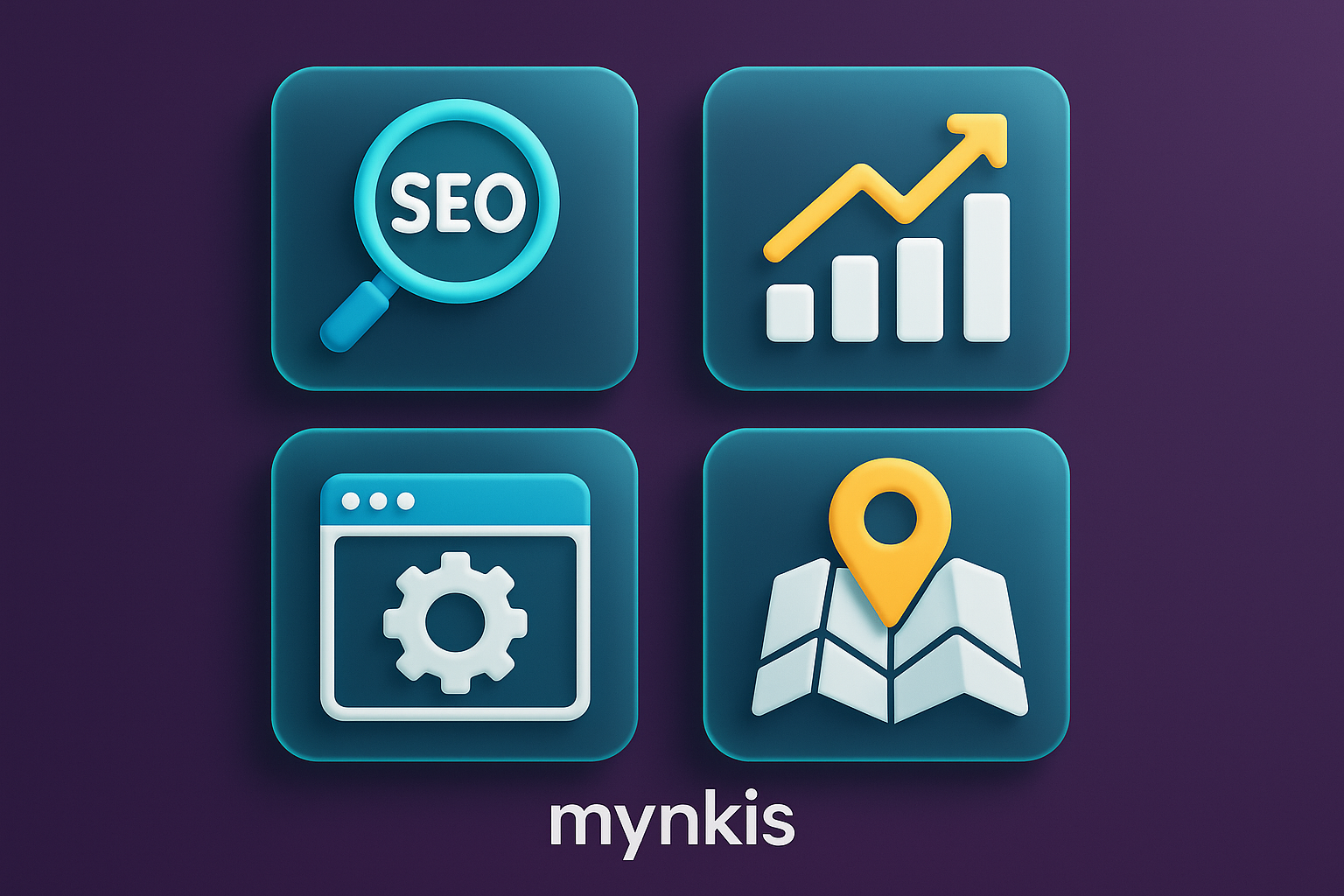Schedule a Demo
SEO, or Search Engine Optimization, is the art and science of aligning your website's content and structure with the algorithms of search engines like Google. In my work with large organizations, I've seen how effective SEO can lead to significant increases in website visibility, organic traffic, and ultimately, business growth. This optimization not only enhances your site's ranking on search engine results pages (SERPs) but also improves user experience, making your site more navigable and content more relevant to your audience's needs.
When you're investing in custom enterprise software for internal tools or customer portals, integrating SEO from the ground up can make a substantial difference. The flexibility of custom solutions means we can tailor metadata, URLs, and site architecture to fully leverage SEO principles. A study by Gartner highlights how businesses that prioritize SEO within their software development see a 30% increase in organic search traffic over those that don't, illustrating the powerful synergy between custom solutions and search optimization.
SEO services encompass a variety of techniques, each vital to improving your website's performance. From keyword research to on-page optimization and link building, each element plays a critical role.
In my experience working with large corporations, the role of SEO often gets lost in the broader context of enterprise software solutions. Yet, it's crucial to remember that these tools don't exist in a vacuum. For instance, when designing a customer portal, integrating SEO ensures that the portal not only serves its primary function but also attracts organic traffic, turning it into a valuable marketing asset as well as an operational tool.
Every large organization has unique needs and objectives, and your SEO strategy should reflect that. Whether you're optimizing an internal tool for employees or a customer-facing portal, understanding your specific audience and goals will dictate the SEO tactics you employ. A healthcare enterprise might prioritize content on medical terms, while a tech firm may focus on technical SEO to compete in a crowded digital space.
It's easy to get lost in the technicalities of SEO, but at its core, optimization should enhance the user experience, not detract from it. I've worked with clients who initially focused heavily on keyword stuffing and saw a drop in engagement. It was only after we shifted our focus to creating valuable, well-structured content that their engagement and, subsequently, their rankings improved. This emphasizes the importance of aligning SEO with what actually benefits your users.
Let's delve into a few case studies that demonstrate the impact of SEO on large enterprises. A Fortune 500 company I worked with increased their organic traffic by 60% within six months of implementing a robust SEO strategy tailored to their enterprise software solutions. They focused on content optimization and backlink acquisition, which directly led to more qualified leads and, ultimately, more sales. These real-world examples not only showcase the potential of SEO but also highlight its direct business benefits.
SEO is not a one-time setup; it's a continuous process of improvement and adaptation. Search engines frequently update their algorithms, and what works today might not work tomorrow. Regular audits, analysis of competitor strategies, and fine-tuning your approach are crucial for maintaining and improving your search rankings over time.
SEO should not stand alone in your marketing arsenal but rather work in concert with other strategies. In my experience, businesses that align their SEO efforts with PPC campaigns, content marketing, and social media marketing see a compound effect on their overall digital presence. For example, running targeted PPC ads can increase brand visibility, driving more traffic to the optimized pages and improving your SEO performance further.
Leveraging the right tools and analytics is essential for any successful SEO campaign. Tools like Google Analytics, Ahrefs, and SEMrush provide insights into keywords, backlink profiles, and overall site health. In my work with enterprises, I emphasize the use of these tools to not only set benchmarks but also to track progress and iterate on strategies effectively.
Looking ahead, the role of SEO in custom enterprise solutions will only grow. The rise of voice search, increased focus on mobile optimization, and the integration of AI and machine learning into search algorithms are just a few trends that enterprises need to be prepared for. Incorporating these elements into your SEO strategy today will ensure your enterprise is well-positioned for the future of digital marketing.
Transparency in reporting and measuring the success of your SEO efforts is vital for large organizations. You need to know exactly what you're paying for and whether those investments are translating into tangible business outcomes. Establishing KPIs like traffic growth, conversion rate, and SEO ranking can help maintain trust and accountability in your SEO initiatives.
As we've explored, SEO services are an indispensable part of modern digital strategies, particularly for enterprises developing custom software and websites. By weaving SEO into the fabric of your enterprise solutions, you not only enhance visibility and attract more traffic but also lay the groundwork for sustainable business growth. The key is to integrate SEO thoughtfully, ensuring it supports both business objectives and user experience, all while keeping an eye on emerging trends and technologies.
